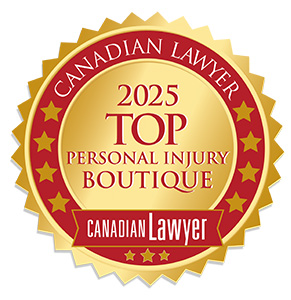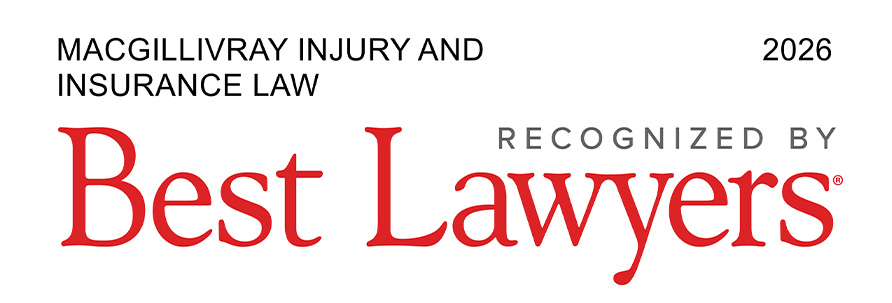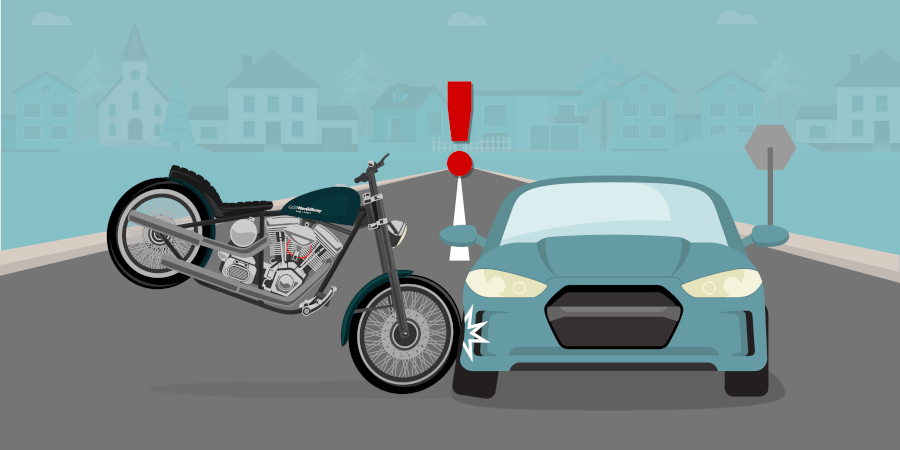




Why should I sue after I get into a motorcycle accident?
Motorcycle accidents can be catastrophic. They can cause serious injuries or even death.
Deciding whether to pursue a lawsuit after a motorcycle accident is a personal choice that depends on several factors. Potential reasons to pursue legal action are:
- Compensation for Damages: Filing a lawsuit allows you to seek financial compensation for various damages resulting from the accident, such as medical expenses, lost wages, property damage, pain and suffering, and rehabilitation costs.
- Holding the At-Fault Party Accountable: By filing a lawsuit, you have the opportunity to hold the party responsible for the accident accountable for their actions.
- Encouraging Safety Measures: By taking legal action, you may help raise awareness about these concerns and potentially prompt changes or improvements to prevent future accidents.
- Insurance Limitations: In some cases, insurance coverage may not fully compensate you for your losses, or the insurance company may deny your claim altogether.
- Peace of Mind and Closure: Going through a motorcycle accident can be traumatic, and pursuing legal action can provide a sense of closure and peace of mind.
At MacGillivray Law, we specialize in assisting individuals in their recovery process following motorcycle accidents, ensuring they obtain rightful compensation for their injuries. If you or a family member have sustained injuries in a motorcycle accident, reach out to us today for a free consultation.
What should I do after a motorcycle accident has occurred?
After a car accident in Newfoundland and Labrador, your first priority is safety. Once everyone is out of danger, take the following steps to protect your health, your rights, and any potential insurance claim:
- Ensure safety and call for help: Check yourself and others for injuries. Motorcycle accidents often result in serious harm, so call 911 immediately, even if you injuries don’t seem severe. If you’re able, move off the road to a safe area to avoid further danger. Turn on hazard lights if a vehicle is involved and it’s safe to do so. Stay calm and wait for emergency responders.
- Exchange information: Get the contact and insurance details of all other parties involved, including full names, phone numbers, driver’s license numbers, license plate numbers, Insurance providers and policy numbers. This information is essential for filing an insurance claim or potential legal action.
- Gather evidence: Take photos or videos of your motorcycle, other vehicles, the scene, and any visible injuries. Document the time, location, weather, and road conditions. If there were witnesses, collect their names and contact information. These details can help determine how the accident occurred and support your version of events.
- Report the accident to police: In Newfoundland and Labrador, you are legally required to report an accident to the police if anyone is injured or if property damage exceeds $2,000. Even in less severe cases, a police report offers an unbiased record that can help clarify fault and strengthen your claim.
- Notify your insurance company: Call your motorcycle insurance provider as soon as possible to report the accident. Provide only the basic facts of the incident. In Newfoundland and Labrador, you may qualify for Section B benefits, which can help cover: medical treatment, lost income and rehabilitation expenses. Timely reporting is often required by insurance policies and it ensures you can access benefits like vehicle repairs and medical coverage.
- Seek medical attention: Even if you feel okay, you should see a doctor. Injuries such as internal bleeding, soft tissue damage, or concussions may not be obvious right away. A medical exam can protects your health, and create a record of your injuries, which is vital for any insurance or legal claim.
Can you sue after a motorcycle accident?
Yes, in Newfoundland and Labrador you can make a claim against the driver who caused your injuries. First, you and your lawyer must prove the other party is at fault and then provide evidence of your injuries.
Can a motorcycle driver sue even if they are partially at fault for the accident?
Yes, you can still sue the other driver if you were partially at fault for the accident. In some motorcycle accidents, the fault may lie both with the rider and the driver of another vehicle. Partial fault on behalf of the injured party is called contributory negligence. When a rider is partially at fault in a motorcycle accident, they will still be entitled to a portion of the damages. This amount will be equal to the percentage of fault the other driver has for the collision.
The Contributory Negligence Act, RSNL 1990, c C-33, explains that where possible, a Court will determine the degree of fault apportioned to each driver based on the facts. In the rare occasion it is not possible for the Court to determine fault, they will split it evenly between the drivers.
For instance, if an accident between a motorcycle and truck occurred, and the truck driver was found to be 75% at fault, and the settlement was valued at $100,000, then the compensation awarded to the rider would be $75,000 for the truck driver’s negligence.
If you are accused of being totally or partially at fault for an accident, a personal injury lawyer can help in collecting the necessary facts to minimize the partial fault arguments and evaluate the claim to its full potential. Contact us for a free consultation.
When is another driver at fault for a motorcycle accident?
Another driver is at fault when their driving was substandard and that caused or contributed to the accident. The standard for driving in Newfoundland and Labrador is determined by referencing the rules in the Highway Traffic Act, RSNL 1990, c H-3, and past case law.
Examples of where another driver could be at fault are:
- Cars making left hand turns: Some drivers may not notice an oncoming motorcycle and proceed into their path of travel. (see Sections 115 of the Highway Traffic Act).
- Distracted driving: Drivers engaging in activities such as texting, talking on the phone, or eating while driving can easily miss motorcycles on the road, leading to collisions.
- Speeding: Excessive speed reduces the time drivers have to react to motorcycles, increasing the likelihood of accidents. (see Section 110 of the Highway Traffic Act).
- Failure to yield right of way: Drivers who fail to yield to motorcycles at intersections or when changing lanes are a significant cause of motorcycle accidents.
- Impaired driving: Alcohol, drugs, or other substances impair a driver’s judgment and reaction time, significantly increasing the risk of accidents involving motorcycles.
- Improper driving for road or weather conditions: Hazards like potholes, loose gravel, or debris on the road can be particularly dangerous for motorcyclists, especially when drivers take action to avoid hazards without regard for nearby motorcyclists.
- Inexperienced drivers: Motorcycles require specific skills and training to operate safely. Inexperienced riders may lack the necessary knowledge to navigate challenging situations.
What kind of injuries can someone in a motorcycle accident get compensation for?
A person injured in a motorcycle accident in Newfoundland and Labrador is entitled to compensation from the driver who was at fault for the accident. Common injuries for which motorcyclists get compensated include:
- Road rash
- Soft tissue injuries
- Serious fractures
- Spinal injuries and spinal cord injuries
- Damage to internal organs
- Burns
- Traumatic brain injuries and other head injuries
- Psychological trauma
Because of the lack of protection to the rider, motorcycle collisions can tragically not only result in catastrophic injuries, but often also result in fatalities. When a loved one has passed away in a fatal motorcycle accident, an experienced injury lawyer can help the deceased’s next of kin recover compensation from the negligent driver.
Are you entitled to no-fault or Section B insurance when you are in a motorcycle accident?
Yes, in Newfoundland and Labrador, Section B no-fault benefits are mandatory and cover motorcycle accidents. Because motorcycles are considered motor vehicles under Newfoundland and Labrador law, no-fault accident benefits – often called Section B – apply to individuals with motorcycle injury claims in the same way as they apply to those with traditional motor vehicle claims.
No-fault accident benefits are called ‘no fault’ because they apply to anyone with motor vehicle insurance, no matter which driver’s negligence caused the accident. This is also the case for motorcycle accident claims – motorcycle riders involved in collisions are eligible for Section B benefits under their motor vehicle insurance policy. Section B expenses can potentially cover medical costs, lost wages, and other expenses related to your accident.
For a more comprehensive explanation of Section B benefits, please see our Section B Benefits section.
If you are in a motorcycle accident, how can you prove you are not at fault?
You can show you did your part to prevent or minimize the effects of the motorcycle accident by:
- Showing photos of the protective gear you wore, including a helmet with eye protection
- Demonstrating your conduct of regular safety in performance checks before riding
- Practicing maneuvering skills in a private lot
- Explaining awareness of the “invisible motorcycle” phenomenon (perceptual blindness to motorcycles)
- Staying out of other drivers’ blind spots
- Avoiding lane splitting
- Staying alert
- Giving yourself time and space to react to dangerous situations on the road
Taking the steps above can prevent a motorcycle crash and eliminate the need for a personal injury lawyer altogether. However, if a motorcycle accident occurs, the injury lawyers at MacGillivray Law are ready to take on your legal claim and protect your interests.
Matthew’s story
Common questions about motorcycle accident injuries
Motorcycles are motor vehicles, so they are treated by Newfoundland and Labrador law the same way the law treats a car, truck, or other motor vehicle on the road.
Visit our Motor Vehicle Accidents section for answers to common questions that apply to all motor vehicles, such as:
- What is the deadline on filing a motorcycle accident lawsuit?
- How much is my injury claim worth?
- What if the other driver is uninsured or unidentified?
- Should I accept the settlement my insurance company offers me?
- Do I have to make a statement to my insurance company?
- How long does a personal injury claim take to resolve?
Motorcycle riders are required to have an insurance policy on their vehicle, just like drivers of other on-road vehicles. When an insurance company denies a motorcycle accident claim, or liability for the accident is in question, a personal injury lawyer can help you get the compensation you deserve.
Do I need a personal injury lawyer for my motorcycle accident in Newfoundland and Labrador?
Motorcycle riders often suffer more severe injuries and face more legal challenges than drivers involved in car accidents. That’s why working with an experienced motorcycle accident lawyer in Newfoundland and Labrador is so important. When your legal team begins handling your case, they will collect all essential documents to build a strong injury claim on your behalf. This includes your medical records, police report, and any witness statements.
Your lawyer will also take over communication with the at-fault driver’s insurance company, as well as manage most interactions with your own insurer. This helps reduce your stress and ensures that your rights are fully protected throughout the process. While you focus on your recovery, your legal team will fight for a fair settlement and make sure you have every possible advantage to receive the full compensation you deserve.
Don’t navigate the legal process alone! Contact our motorcycle accident lawyers today for a free consultation and get the support you need to move forward with confidence.
Relevant legislation
Highway Traffic Act, RSNL 1990, c H-3.
Contributory Negligence Act, RSNL 1990, c C-33.
Automobile Insurance Act of Newfoundland and Labrador, RSNL 1990, c A-22.
Have questions for our team?
Frequently Asked Questions
What Our Clients Say...
Request a
Free Consultation
If you would like to learn your legal options at no obligation, contact us today to set up a free consultation.



